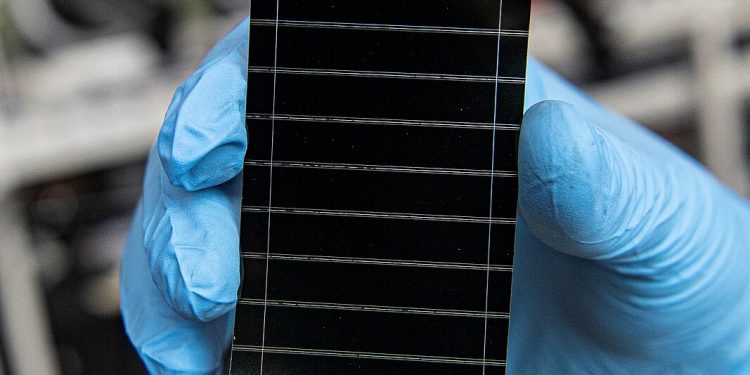Solar panel technology has made enormous progress in the last two decades, with silicon solar cells now reaching efficiencies of over 30%. However, this technology is nearing its limits, and new approaches are needed to increase efficiency further and reduce costs.
Tandem solar cells are a promising new technology that can convert more sunlight into electricity than conventional solar cells. They use two different materials to absorb energy from the sun, allowing them to capture a wider range of the solar spectrum.
Researchers have recently achieved a tandem solar cell efficiency of 33.7%, which is significantly higher than the efficiency of traditional silicon solar cells. This suggests that tandem solar cells have the potential to revolutionise the solar industry.
However, there is one major catch: current tandem solar cells rely on scarce materials such as silver and indium. This could limit the ability of manufacturers to ramp up production volumes in the future.
A major redesign of tandem solar cells is urgently needed to enable the exponential acceleration of solar deployment. This will require developing new tandem cell designs that use more abundant materials.
Researchers are already working on this problem, and there is hope that new tandem solar cell technologies will emerge in the coming years. If this happens, tandem solar cells could help us to transition to a clean energy future much faster than we currently think possible.
In addition to the above, here are some other key points:
- Tandem solar cells are poised to overtake conventional silicon solar cells in the coming decades.
- A scarcity of materials such as silver and indium could limit the ability of manufacturers to ramp up production volumes of tandem solar cells.
- A major redesign of tandem solar cells is urgently needed to enable the exponential acceleration of solar deployment.
- Researchers are already developing new tandem cell designs that use more abundant materials.
- Tandem solar cells offer a promising way forward in the race to tackle climate change.


















